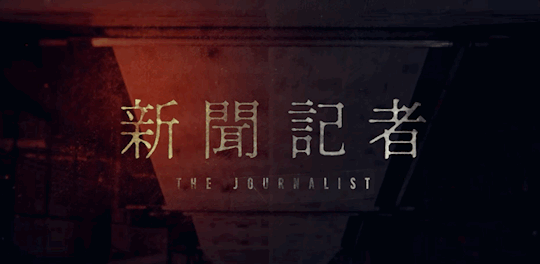#shinbun
Text
明治の出版
- “Why?” [the merchant] asked. “I’ve got it [the yesterday newspaper] - what more do I want?”
- “Yes, you have one day’s issue, and it comes out every day.”
- “So I understand,” he replied, “but having it already, why should I take it everyday?”
And all the clerks laughed, thinking it an excellent stroke of wit, no doubt.
La nascita dell’editoria moderna in Giappone 1853–1890
L’evoluzione dell'editoria moderna e stampa giornalistica in Giappone tra il 1853 e il 1890 attraverso un'indagine approfondita degli sviluppi tecnologici, sociali e politici dell'epoca.
di Simon Pilati
19,20€ - 154 pagg. a colori
ISBN 9781446129609
© Giugno 2024, Italia
INFO E ANTEPRIMA

#editoria giapponese#nascita editoria moderna#libro#evoluzione stampa giapponese#Fukuzawa Yukichi#bunmei kaika#kisha club#editoria#ricerche storiche#storia giapponese#zasshi#oranda fūsetsugaki#Giappone#cultura#Meiji#tipografia#shinbun#Fukuchi Genichirō#Edoardo Chiossone#Ōshinbun#Ukiyo-e#Bakumatsu#Letteratura giapponese#Critica letteraria#Stampa#Meirokusha#Politica editoriale#Giornalismo#Libertà di stampa#Letteratura
0 notes
Text

Meiko Kaji (梶芽衣子)
Scanned from Asahi Shinbun (朝日新聞) newspaper, January 1, 2024
62 notes
·
View notes
Photo

Tatsuki Yoshihiro (立木 義浩) - Eves - Sankei Shinbun-sha - 1970
#witches#photographers#occult#vintage#eves#イヴたち#tatsuki yoshihiro#立木 義浩#Sankei Shinbun-sha#サンケイ新聞社#photography#写真帖 1970
36 notes
·
View notes
Text
hmm was just reminded of smth that's been simmering in our mind for years.
it's wild to me that people exist that don't really know the absolute horror of the atomic bomb. reading accounts since childhood (via textbooks, news articles, etc) of what happened on that day always fills me with so much fear and sorrow. you can also see the trauma of the bombing and fallout haunting japan through so much art, literature, etc etc (including anime and manga!!! popular ones!!!)
and yet people joke about nukes and nuclear war. everywhere
and i don't think we've ever shown it outright bc we tend to just play along but it's so distressing every time we see/hear a nuke joke in any context. i genuinely can't understand how anyone can possibly think it's funny.
#feel free to rb but yall better behave#idk what good english resources there are#but the main account im thinking of rn is an interview published by asahi shinbun#with someone who was a middle schooler in hiroshima at the time#and he was the only survivor in his entire class *because he skipped role call to fix a button on his uniform*#in the article there was also art from the manga 'hadashi no gen'#(autobiography of a similar survivor)#that illustrated what the aftermath was like. which i am not going to describe#genuinely getting chills and dizzy thinking abt this im gonna stop#this is not everything but. yk#- blue
15 notes
·
View notes
Text
Also it fuckedme up trying to learn certain words in Kanji or whatever bc I kinda know Chinese so trying to retrain myself not to say jung guo ren or yi sheng when I see the same characters is hard. But also cool when they make the same sound. I also once knew Korean so here and there I see cognates it's cute
11 notes
·
View notes
Text
Bakku-shan
The woman who is only beautiful from behind.
In a male-dominated world, this is sure to manifest itself in language. So with this word, whether it is contempt for women should remain unassessed here, they can decide that for themselves. First of all, it is a statement according to cultural circumstances and therefore exceptional or rather unique.
mod
We'll never know if it applied to her, and if it did, it wouldn't matter with a hairstyle like that.

Brief cultural history
The Japanese islands were colonised in at least two waves: In the Jōmon period, people probably migrated to Japan from north-east Siberia, and in a second phase, the Yayoi period, via the Korean peninsula. The first agricultural techniques (dry farming) have also been documented from this period.
In the 7th century, Korean Buddhist monks brought not only religion but also Chinese writing, the Chinese classics and Confucianism to Japan.
The Heian period saw the first flourishing of the Chinese aristocracy, who developed their own poetry and literature under Chinese influence.
In the following eras, the country was repeatedly devastated by civil wars, as a result of which the sword nobility, the bushi, later known as samurai, rose to become the most important class. In addition to the art of warfare and swordsmithing, a new form of Buddhism, Zen, emerged, which appealed to the warriors.
It was not until the Edo period in the 17th century, under the Tokugawa, that the country came to rest again. The samurai became a civil servant class who preserved their warrior virtues in the martial arts, bujutsu or budō. The influence of Zen was now also reflected in poetry, garden art and music. Peace and economic prosperity also brought wealth to the fourth class, the merchants. As they were denied social advancement, the merchants sought a way to outdo the samurai in the arts. They promoted teahouses where the geisha practised the tea ceremony, flower arranging, music and dance. They also promoted kabuki theatre. Special entertainment districts were formed in the cities, especially in Edo, where the daimyō had to spend half the year under the direct control of the Shōgun.
Japan experienced a third cultural heyday in the post-war period, during which Japan produced a vibrant pop culture that combined Western influences and Japanese tradition.
Wikipedia more or less
#Traditional Osafune hairstyle#Miyako Shinbun#Pax Tokugawa#Bakku-shan#A unique word#japan#galelry mod#history#human history#wikipedia#more or less
3 notes
·
View notes
Text




Shinbun Kisha (2022) | Japanese Drama
#Shinbun Kisha 2022#Shinbun Kisha#The Journalist#The Journalist 2022#jdrama#japanese drama#journalism#newspaper#cinemetography
2 notes
·
View notes
Text
completed Shinbun Kisha and gave it a 7 rating.
Pros:
• Ayano going through various emotions is jaw dropping.
• Desperation & fear can be felt from start to finish.
• Realistic ending with a good message.
Cons:
• Many useless scenes & boring side stories.
• The story is not complicated enough for a drama. This would make an awesome movie.
Verdict:
• It’s good but not impressive. The story is similar to other plots regarding government corruption and coverups.
2 years ago
0 notes
Text
Chronicle 2022
ときに絶望的な無力感に陥るほど、至るところで、また相次いで暴力が剝き出しになった一年でした。その暴力は直接に破壊的なものだけではありません。社会を壊し、そこに生きる者を蝕んだうえに、直接的な暴力の前に晒し出す暴力も、さまざまなかたちで露わになった年だったと感じています。もちろん、この一年を振り返るにあたり、ウクライナで今も続く戦争の暴力を挙げる必要があるのは確かでしょう。2月24日、ロシア軍のウクライナ各地への攻撃が始まったという報せを聞いたときの衝撃は忘れられません。
現在も続いている攻撃によるウクライナの民間人の死者は、記録されているだけでも七千人に達しようとしているとのことです。痛ましい犠牲です。大切な人を失った人々の悲しみを思うと言葉がありません。そして、生き残った人々の苦悩は、今も積み重なるばかりです。生活を根こそぎにされて避難を余儀なくされた人々や、生活の基盤を破壊されて恐…

View On WordPress
#Chugoku Shinbun Newspaper#燃エガラからの思考#Eri Watanabe#Franz Schubert#Hiroshima Happy New Ear#Hiroshima Symphony Orchestra#Impact Press#Mercure des Arts#Nobuyuki Kakigi#The Kyushu Symphony Orchestra#Toru Takemitsu#Toshio Hosokawa#Toshoshimbun Newspaper#Walter Benjamin#柿木伸之
0 notes
Text

Unknown, Actress Disguising Herself as a Man (Onna haiyû no dansô), from the series World of Picture Postcards (Ehagaki sekai)
絵葉書世界 「女俳優の男装Japanese
Publisher: Kokkei shinbun shaJapaneseLate Meiji era, 1907
627 notes
·
View notes
Text



L'APPRENTI SORCIER - August 8, 2024
Shoma Uno and Stephane Lambiel
Introductions and Stephane's Speech for Shoma
📸 Kota Yoshida for Mainichi Shinbun
#shoma uno#stephane lambiel#figure skating#fs#l'apprenti sorcier#the sorcerer's apprentice#l'apprenti sorcier 2024#the sorcerer's apprentice 2024#season: 2024 2025#this is becoming a series#shoma uno archives
99 notes
·
View notes
Text

Shiruetto ya kage ga
Kakumei o miteiru
Mo tengoku no jiyuu no kaidan wa nai
Silhouettes and shadows
Watch the revolution
No more free steps to heaven
It's no game
Ore genjitsu kara shime dasare
Nani ga okkote irunoka wakara nai
Doko ni kyokun wa arunoka hitobito wa yubi o orareteiru
Konna dokusaisha ni iyashime rareru nowa kanashii
I am barred from the event
I really don't understand the situation
And it's no game
Documentaries on refugees
Couples 'gainst the target
Throw a rock against the road
And it breaks into pieces
Draw the blinds on yesterday
And it's all so much scarier
Put a bullet in my brain
And it makes all the papers
Nammin no kiroku eiga
Hyoteki o se ni shita koibito tachi
Michi ni ishi o nage reba kona gona ni kudake
Kino ni huta o sureba kyohu wa masu
Ore no atama ni tama o buchi kome ba
Shinbun wa kaki tateru
So where's the moral
When people have their fingers broken?
To be insulted by these fascists is so degrading
And it's no game
It's no game (no.1) (1980)
Japanese vocal by actor Michi Hirota (who appeared as a geisha on the cover of Kimono My House by Sparks!)
60 notes
·
View notes
Text

Meiko Kaji (梶芽衣子)
Scanned from Asahi Shinbun (朝日新聞) newspaper, January 1, 2024
25 notes
·
View notes
Text

'Quiet Cats' (1908) by an unknown Japanese artist.
Postcard published by Kokkei shinbun sha.
Image and text information courtesy MFA Boston.
379 notes
·
View notes
Text

Shy Maeve from twokinds by Shinbun on Twitter
273 notes
·
View notes
Text

Happy birthday, Kotoku Shusui! (November 5, 1871)
An influential Japanese socialist and anarchist, Kotoku Shusui was born in Kochi Prefecture, and from a young age became politically-involved, joining the pro-democracy opposition to the Meiji government. A mentee of the Japanese radical Nakae Chōmin, Kotoku moved leftwards towards socialism, publishing the anti-imperialist work Imperialism, Monster of the Twentieth Century, and helping to found the Social Democratic Party of Japan, as well as the socialist newspaper Heimin Shinbun. He also worked to translate left-wing literature such as The Communist Manifesto into Japanese. The newspaper was banned and Kotoku sent to prison, where he moved towards anarchism, and after his release he traveled to the United States where he made contact with anarchist thinkers and organizations. Upon his return to Japan, he became a leading figure in popularizing anarchism among the Japanese left, even as the government continued to work to suppress all left-wing thought. In 1910, Kotoku was accused in an alleged bomb plot to assassinate the Emperor. In an unfair trial, Kotoku was convicted, and he was executed in 1911.
79 notes
·
View notes